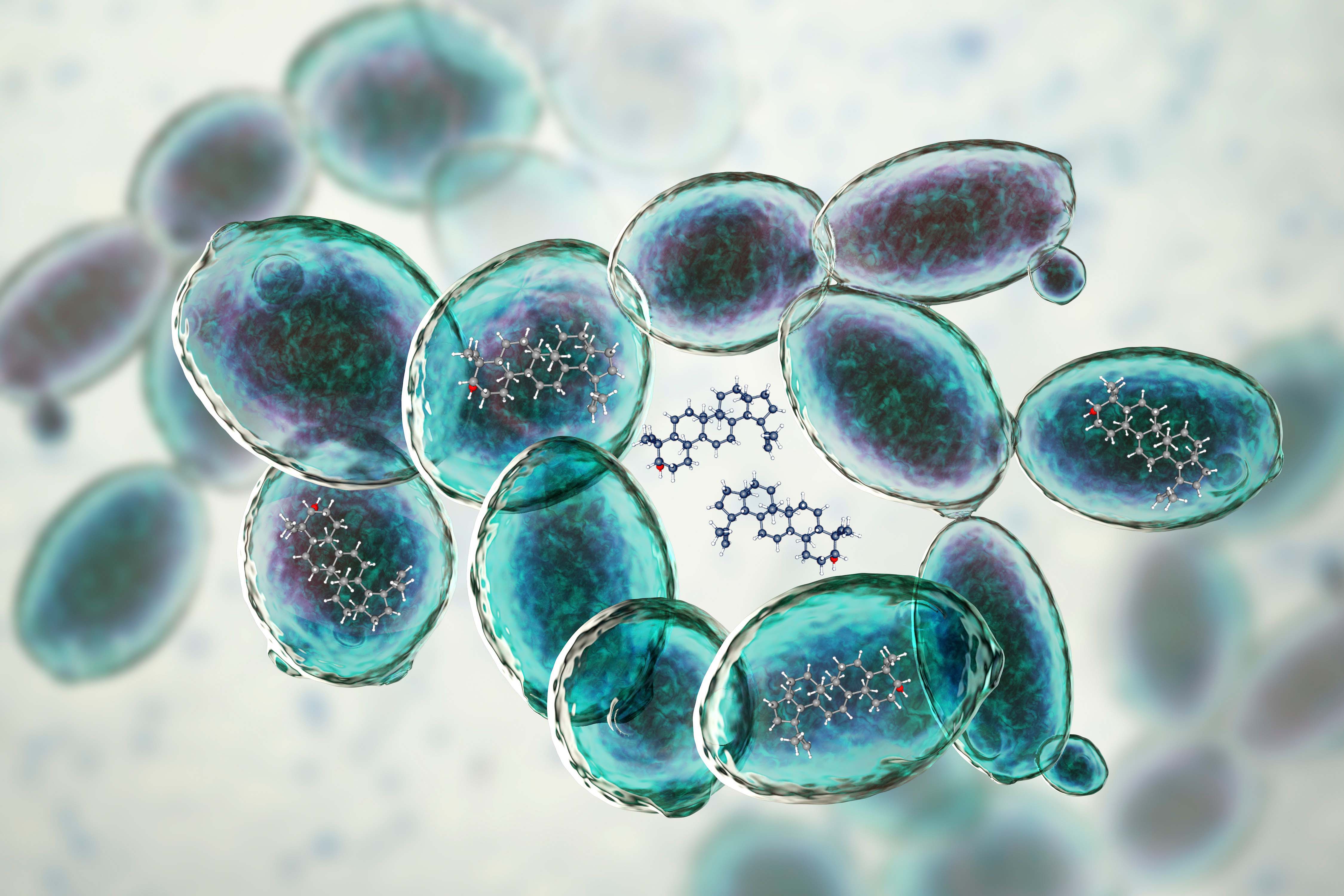"Aspirant" is followed by "Perspective" - Innovative ways of producing and utilizing triterpenoids
The successor project to "Aspirant" - "Perspective" - started at the beginning of February. The research and development project made it through the second phase of the initiative "Tailor-made biobased ingredients for a competitive bioeconomy" of the German Federal Ministry of Education and Research (BMBF). Based on the success of the first phase "Aspirant", in "Perspective" the network is intensifying its focus on the production and application of triterpenes.

Triterpenoids, with many thousands known compounds, represent one of the largest groups of secondary metabolites in the plant kingdom. These are natural compounds produced by plants not for primary metabolism in growth, but for special tasks such as defense against pests or attracting pollinators.
During biosynthesis, more than 100 different triterpene scaffolds are synthesized from six isoprene units, which undergo further modifications, leading to this enormous structural diversity. Cyclic triterpenoids are of particular interest - they exhibit very versatile bioactive functions. The potential includes antimicrobial, antioxidant, anticarcinogenic, and antiallergic effects, making them attractive for agricultural and pharmaceutical applications.
The extraction of triterpenoids from producing plants is associated with major challenges: One problem is that these substances are often present in plants only at low concentrations. Furthermore, depending on the respective environmental conditions such as light, temperature, pest infestation or soil properties, the composition and quantities vary. In addition, isolation from plant biomass often involves considerable energy and resource consumption, which in turn conflicts with economically and ecologically reasonable exploitation. Chemical synthesis from petrochemical feedstock, on the other hand, struggles with the enormous complexity of natural products. It also leads to a large number of undesirable byproducts that make isolation difficult. Alternative, sustainable systems for production and purification are needed in the sense of the bioeconomy.
One promising production option is biosynthesis using yeast cells in a bioreactor. The research network already relied on this option in the initial "Aspirant" project. The aim was the directed biosynthesis of pharmaceutically relevant terpenoids in yeasts. Knowledge-based selection of suitable triterpenoids from plants was followed by identification of the enzymes required for biosynthesis and their introduction into yeasts. The enzymes oxidosqualene cyclases (OSCs) convert the naturally occurring substrate in yeast, 2,3-oxidosqualene, into the desired triterpenoid. Further enzymatic modification, such as oxidations or incorporation of sugar residues, alters its chemical properties and bioactivity. "We use a yeast strain with a biosynthetic pathway optimized at Fraunhofer IME in Münster. Using this yeast platform increased productivity and redirected metabolic flux toward the desired triterpenoid. The success was reflected in a dramatically increased yield. In addition, the purified triterpenoids have a high purity of more than 98 percent and consistent quality," explains Boje Müller, research manager of "Perspective" at Fraunhofer IME. In vitro, these substances showed positive effects on inflammatory parameters: For example, in pharmaceutically relevant test systems of human cells, anti-inflammatory activity, but also novel effects.
The research network team, coordinated by Fraunhofer IME, combines expertise from chemistry, biology, process engineering and pharmacy and, building on these successes, also prevailed in the second phase of the initiative "Tailor-made biobased ingredients for a competitive bioeconomy". The German Federal Ministry of Education and Research (BMBF) is funding the follow-up project "Perspective" over a period of three years. Scientists from the Technical University of Munich (TUM), the Fraunhofer IME and the SMEs VivaCell Biotechnology GmbH and Phytowelt GreenTechnologies GmbH are once again pooling their expertise for "Perspective" to jointly further expand the steps of the value chain and exploit triterpenoids as the basis of innovative pharmaceutical products.
"With triterpenoids, Phytowelt has now been able to establish fermentative processes for all classes of terpenoids, opening up the entire spectrum of this diverse bioactive product class," reports Ira Lauer from Phytowelt.
"With "Perspective", we will advance such R&D work that showed the greatest potential in "Aspirant". For example, the metabolic analyses at TU Munich revealed various options for optimizing triterpenoid biosynthesis in cellular "factories" - yeasts. In addition, the results indicated different ways of modifying the fermentation conditions to further increase triterpenoid production," elaborates Wolfgang Eisenreich of the TU Munich on some of the strategies for the follow-up project.
Based on the results from "Aspirant", the researchers created a priority list to meet the specific requirements of pharmaceutical or cosmetic applications via targeted diversification of triterpenoids. In addition, "Perspective" is accompanied by experts from industry to enable seamless commercial exploitation of the results.
Overall, the researchers aim to create sustainable value with "Perspective" in line with the national research strategy Bioeconomy 2030, the German Sustainability Strategy and the United Nations Sustainable Development Goals (UN SDGs).
 Fraunhofer Institute for Molecular Biology and Applied Ecology IME
Fraunhofer Institute for Molecular Biology and Applied Ecology IME